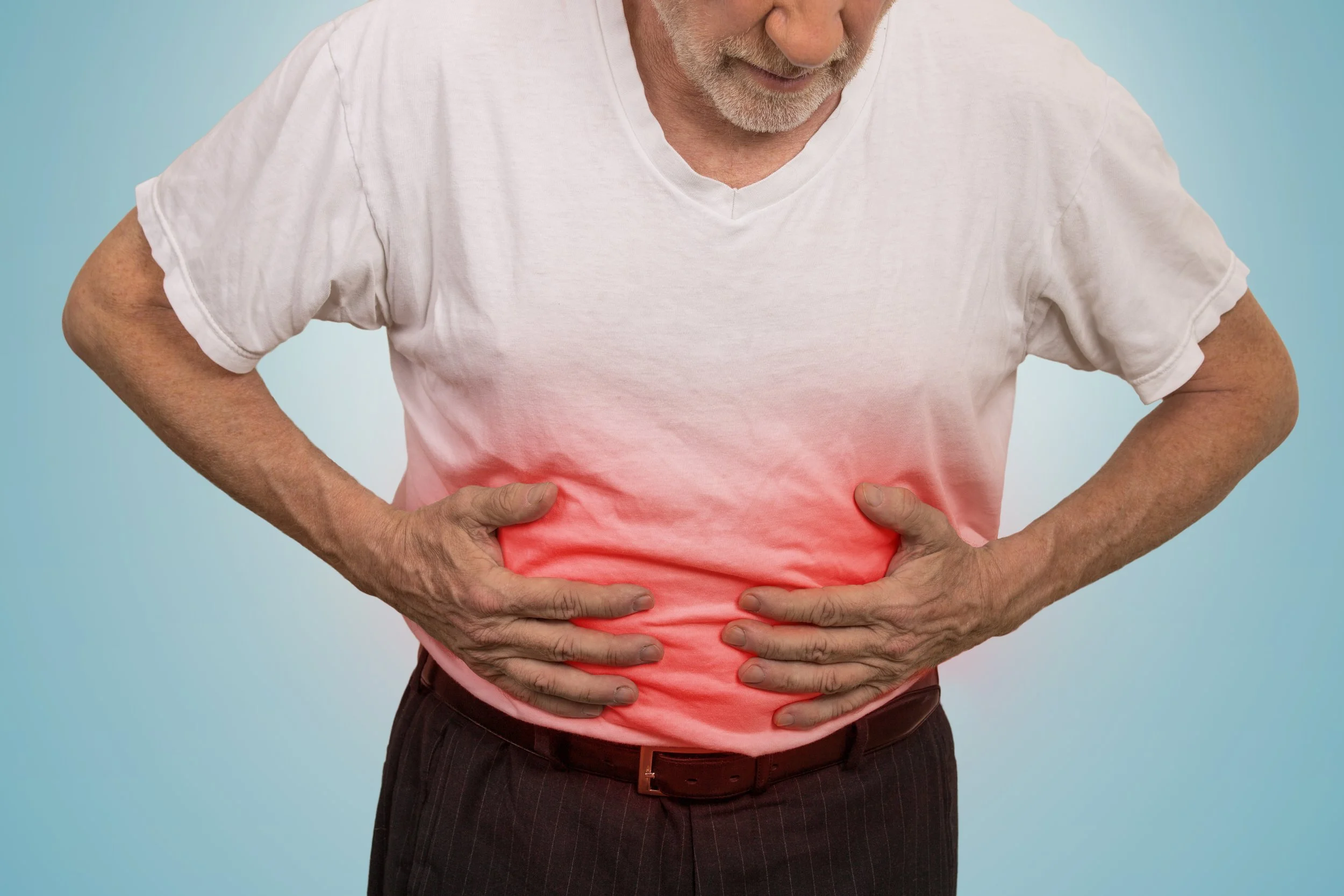If you or a loved one struggles with Crohn’s disease, you know just how painful, uncomfortable, and life-altering this condition can be. While this disease is rare, its impacts on the body are dangerous, often causing malnutrition and reducing a patient’s desire to eat food that they know is going to bother their intestines. In this blog, we’re going to chat a little bit about the Crohn’s disease causes and answer a couple of important questions: what is Crohn’s disease and what is the most effective treatment for Crohn’s disease?
What Is Crohn’s Disease?
Crohn’s disease is an irritable bowel disease (IBD) that is characterized by chronic inflammation (inflammation that won’t go away) in the digestive tract. It can affect both the large intestine and the small intestine, and most individuals with Crohn’s disease struggle to get enough nutrition.
Crohn’s Disease Causes:
Doctors still aren’t quite sure what causes Crohn’s disease, but there appears to be a genetic component. Jews, Caucasians, and people with a family history of the disease tend to be more likely to deal with this condition. It is suspected that Crohn’s disease is an autoimmune condition but it also seems to be affected by environmental factors like cigarette smoke and pollution.
What Does Crohn’s Disease Treatment Look Like?
Unfortunately, as with most diseases that are poorly understood, there is no “cure” for Crohn’s disease. Furthermore, if no action is taken whatsoever, severe inflammation and even obstruction can occur in the bowel. This is why colorectal specialists will urge you to take serious action if it is determined that you have Crohn’s disease.
These treatments will include steroids, immune supressors, biologics (drug therapies that target very specific proteins), antibiotics, or even surgery.
What Is the Most Effective Treatment for Crohn’s Disease?
For patients with Crohn’s disease, medications will only slow down their disease progression and, eventually, they will need surgery to remove damaged portions of the bowel. Some doctors, once the disease is progressed or serious enough, may even recommend removing the entire bowel. However, your doctor will probably start with antinflammatory medications and go from there.
What Does Surgery for Crohn’s Look Like?
If your doctor wants to be aggressive, a complete colectomy may be on the table. This will completely remove your large intestine and you will either have a colostomy (the external pouch that needs to be emptied) or an anastamosis (two ends of bowel are joined together so you don’t need a colostomy).
Some doctors will only do a partial colectomy and only remove the section of bowel that is diseased and damaged. This is a very personal decision and will depend on how you want to live your life – if managing your symptoms with medications and turning to surgery when absolutely necessary works for you, then this is what your treatment plan will look like. Be sure to discuss all of your options with your doctor so you can more fully understand your condition.
If you do choose bowel surgery, you’ll be looking at a month or more of down time, anesthesia and a specific postoperative diet, and perhaps even a learning curve if you have a colostomy port placed. Bowel surgery carries its own risks and healing from it requires strict adherance to your surgeon’s instructions.
How Do We Test for Crohn’s?
Are you wondering “Do I Have Crohn’s Disease?” If so, you might need to make an appointment with our office or ask for a referral to our office from your general care practitioner. Our team of colorectal experts can test you and see if you might be suffering from Crohn’s disease. We can also help develop a plan of action to help you start feeling better. Contact us today!

